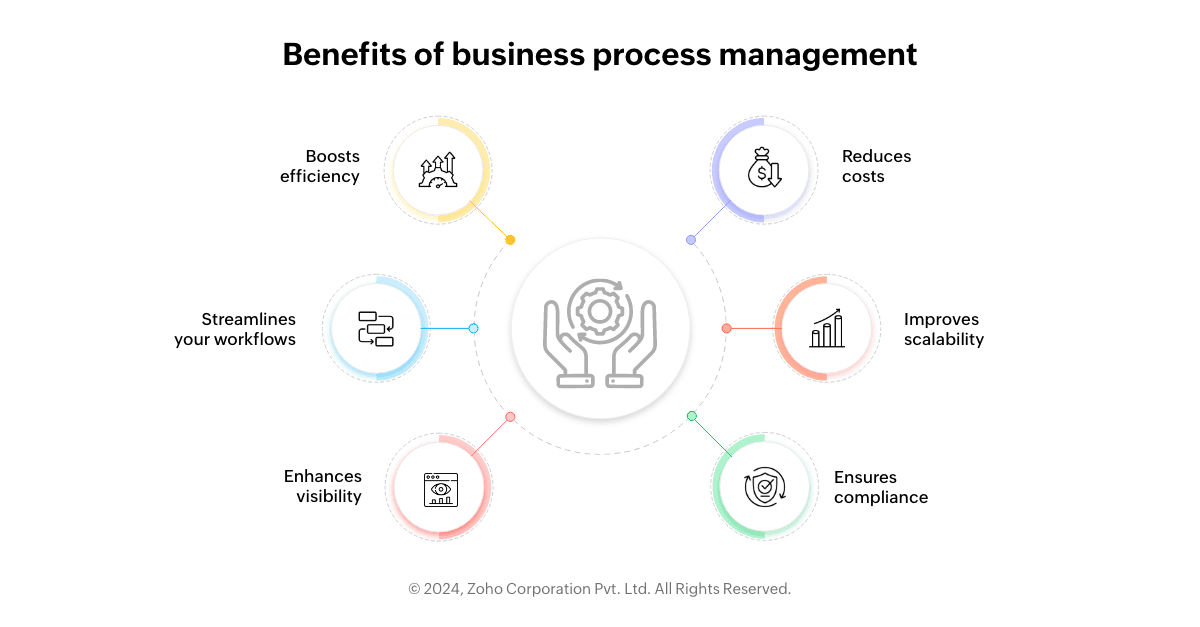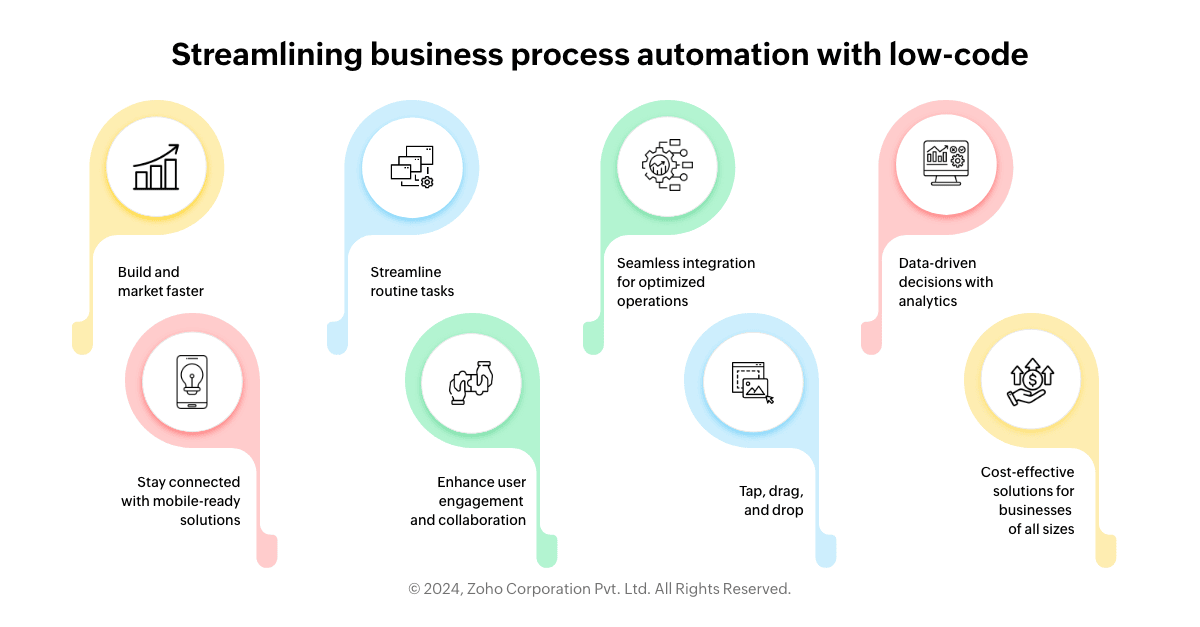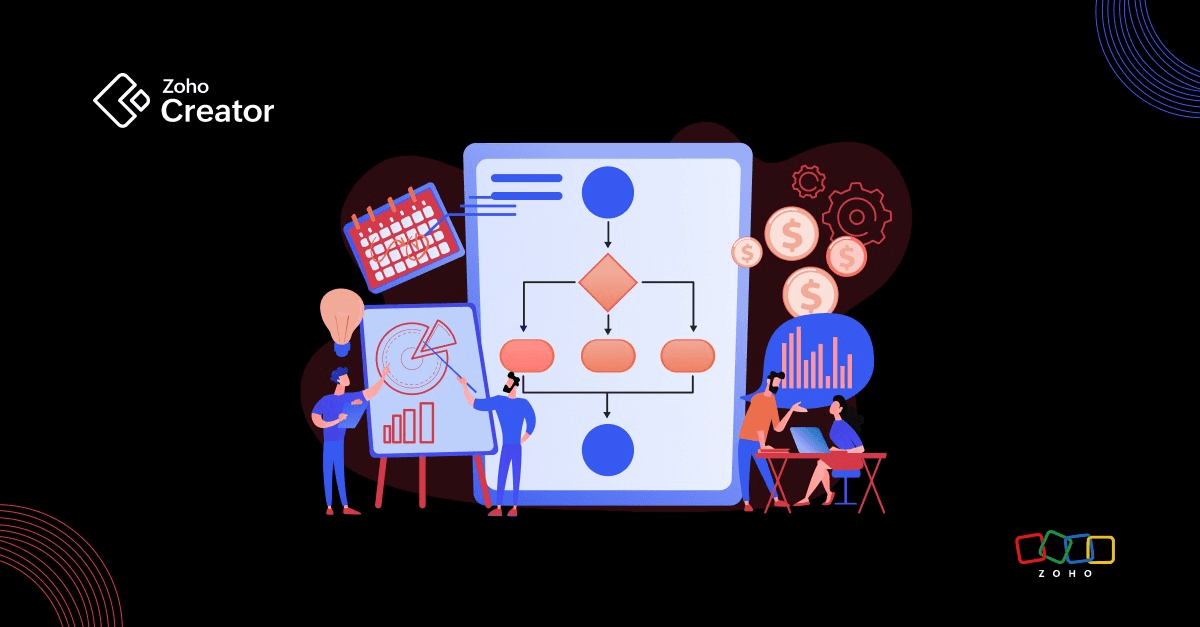- HOME
- Know Your Tech
- The essential role of business process automation in the modern workplace
The essential role of business process automation in the modern workplace
- Last Updated : July 25, 2025
- 785 Views
- 6 Min Read
Learning a new language isn't easy—it requires dedication, practice, and often stepping out of your comfort zone. Initially, it may be challenging, but with time and effort, you become fluent.
For an organization that's still using old legacy systems, digital transformation is like learning a new language. Adopting technology to streamline your company's business processes might be difficult at first, but it will be worth it.
For someone very new to digitally transforming their business, the best way to start is by implementing business process automation (BPA).
In this article, we'll discuss how business process automation can benefit your business and help you stay ahead of the competition.
What is business process automation?
Gartner defines business process automation as "the automation of complex business processes and functions beyond conventional data manipulation and record-keeping activities, usually through the use of advanced technologies."
The primary goal of BPA is to reduce manual work within an organization by automating routine tasks and processes, making it easier to be efficient. Business process automation involves using software and technology to automate complex workplace processes into more straightforward tasks, allowing you to focus on other crucial aspects of the organization.
The need to automate business processes
In our daily lives, we rely on various tools and technologies to save time and make things easier. Whether we're using a washing machine for laundry or taking an Uber to work, these conveniences help us manage our time better.
Similarly, it's crucial to ensure that businesses leverage technology to achieve their goals. Incorporating business process automation empowers companies to do more with less by automating their workflows. Here's an example of how automation can help with your day-to-day tasks:
Comment
byu/jsreally from discussion
inn8n
Gartner reports that inefficiencies can cost companies up to 30% of their revenue annually, so addressing them through automation is crucial to avoiding task stagnation.
But automating business processes at an organization can do more than save time—it goes beyond simply eliminating off-the-shelf software to streamline operations.
Are BPA and BPM the same?
Business process automation is often confused with business process management (BPM). While both complement each other, they aren't the same. BPA mainly focuses on automating repetitive processes and workflows using BPA software/tools within an organization.
BPM, on the other hand, focuses on managing, designing, executing, monitoring, and optimizing end-to-end business processes, with or without the usage of advanced technologies. It covers a broader spectrum, with BPA being a subset of BPM in many cases but not always.
Benefits of business process management

Boosts efficiency
Effectively managing workplace processes is essential to maximize productivity. Implementing business process automation software and tools can significantly enhance this by automating repetitive tasks and manual processes, thereby saving time, reducing workload, and ultimately improving operational efficiency.
Streamlines your workflows
Are you tired of following up on every pending task? Business automation completes processes without requiring constant status updates, guaranteeing continuous function performance. This reliability reduces stress and increases overall workflow stability.
Enhances visibility
A business process automation system provides:
Greater visibility into ongoing activities
Easier tracking and monitoring of business processes while offering real-time insights
Identification of bottlenecks and inefficiencies, enabling quicker improvements
Reduces costs
Automating business operations reduces dependency on manual work, ultimately cutting labor and other resource costs. Additionally, it minimizes the need for further technical expenditures. The use of business process automation tools can also lower operational costs by reducing errors and rework, leading to significant long-term savings for your company.
Improves scalability
Automating repetitive tasks with business process automation allows organizations to scale operations effectively. As your organization grows, automated processes help handle increased workloads and additional requirements—without the need for an increase in human effort. This scalability ensures that growth is sustainable and manageable.
Ensures compliance
Automating processes helps ensure your organization follows necessary rules and procedures. BPA solutions can provide documentation, making it easier to track compliance and audit trails. This helps manage risk by identifying issues early and addressing them then and there.
Where can you implement business process automation?
With BPA tools, you can automate a wide range of core processes within your company, which will help standardize operations at the entire organization.
Let's explore a few examples of business processes that you can automate with BPA:
Employee onboarding
BPA helps HR teams with all aspects of onboarding new employees, including completing paperwork and guiding new hires through their initial steps.
Sales process automation
The sales team can manage and automate the onboarding of their prospects and leads, ensuring a streamlined sales pipeline and more efficient follow-ups.
Customer support
Provide better customer support by automating the entire process of responding to questions and tickets, ensuring prompt and consistent service for your users.
Social media management
An automation solution allows you to schedule posts, analyze engagement, and even respond to messages instantly, making social media management more efficient and effective.
Approval requests
Streamline approval processes by automating approval requests, ensuring the system forwards them to the next level without delay.
Now that you've explored a few examples of processes your organization can automate, let's explore how you can use low-code platforms to streamline existing processes.
Streamlining business process automation with low-code
Low-code platforms offer businesses of all sizes the capability to build automation tools that can help standardize their processes. Tools like Zoho Creator enable companies to create business process automation solutions tailored to their specific needs. Here’s how low-code platforms can assist in workflow automation:

Build and market faster
With prebuilt templates and components, Zoho Creator speeds up the development process. These ready-to-use elements help business users rapidly deploy BPA solutions, allowing them to adapt to changing business requirements. You can also perform real-time testing and debugging of your applications, and deploy them effortlessly to various devices and platforms.
This ability to develop and deploy applications faster, making your job easier, is a significant advantage.
Streamline routine tasks
With Zoho Creator, you can streamline routine tasks by creating automated workflows. For example, you can set up workflows to send and schedule emails, perform actions, and trigger them as needed. If you want to customize every detail of your process, you can use blueprints, which facilitate automation and validation among various stakeholders. Blueprints are essentially online replicas of business processes, helping to streamline these processes further. These workflows can be fully customized to meet your specific needs.
Seamless integration for optimized operations
Zoho Creator's integration capabilities enable a seamless connection with third-party APIs and built-in connectors. This allows for the integration of existing and external applications and systems, facilitating the automation of processes that require data from various sources.
Additionally, Zoho Creator utilizes a powerful scripting language called Deluge. This allows users to incorporate complex business processes, add custom functions, and create integrations, thereby streamlining automation.
Data-driven decisions with analytics
The built-in analytics and business intelligence capabilities in Zoho Creator are pivotal for making informed decisions grounded in operational excellence. These tools provide real-time insights and comprehensive data analysis, allowing businesses to monitor key performance indicators (KPIs), track trends, and identify areas for improvement.
Stay connected with mobile-ready solutions
Our phones have become an integral part of our lives, and mobile-ready business applications are now in high demand. Zoho Creator meets this need with its powerful mobile application development. You can create apps on the web and seamlessly publish them for use on both iOS and Android devices. This ensures that your applications are accessible across multiple devices and platforms, allowing you to track and manage tasks from anywhere, at any time.
Enhance user engagement and collaboration
Zoho Creator facilitates collaboration among IT, business teams, and end users. Users can also be engaged in the design and feedback processes, allowing them to customize and adjust their own applications independently. Additionally, by working closely together, IT and business teams can optimize workflows more effectively, ensuring that both technical and business perspectives are considered.
Tap, drag, and drop
BPA tools like Zoho Creator offer an intuitive drag-and-drop visual interface, making it easy for users with minimal coding knowledge to design and build applications quickly. This accessibility allows for faster application development and deployment. If you need a business process automation tool, low-code platforms enable you to develop one without extensive coding knowledge.
Cost-effective solutions for businesses of all sizes
Low-code platforms reduce the need for extensive coding and empower citizen developers. This cost-effective approach minimizes reliance on technical expertise, making it feasible for organizations of all sizes to leverage BPA solutions.
Low-code platforms like Zoho Creator make it easier than ever to implement BPA, offering user-friendly interfaces, rapid development capabilities, powerful integration and analytics tools, and more. These platforms enable organizations to build tailored automation solutions that meet their unique needs and help standardize processes.
If you're looking to build a business process automation tool to streamline processes in your organization, low-code platforms like Zoho Creator offer the features and flexibility needed for you to get started.
So what are you waiting for?
 Varna C V
Varna C VVarna is a Product Marketer at Zoho. After her higher secondary education, she discovered Zoho Schools of Learning and chose to pursue her education in a non-conventional way. Outside work, she loves spending time with her friends. She sings all the time, sometimes on key.



